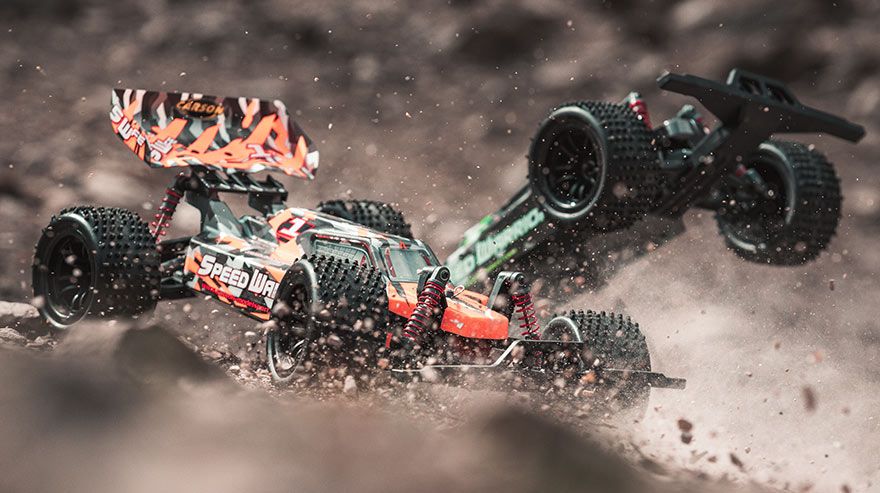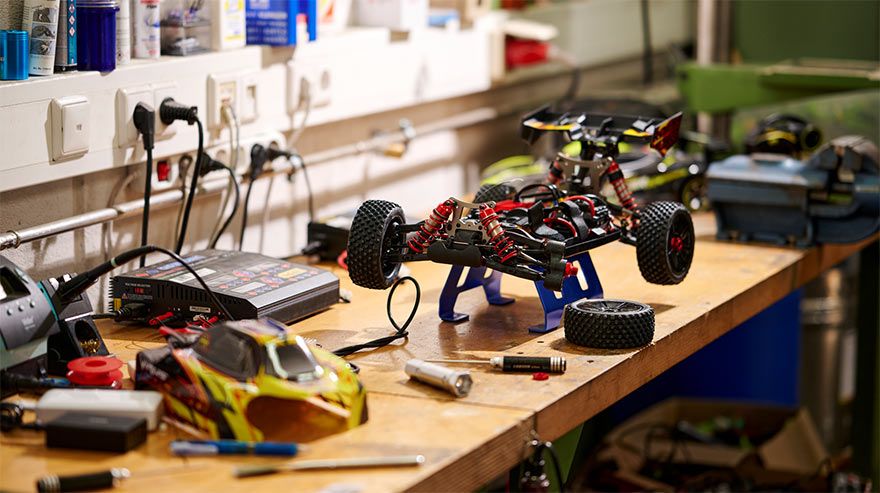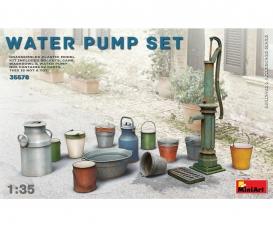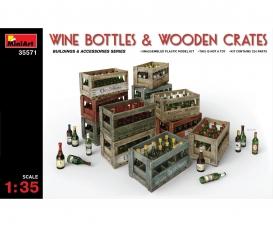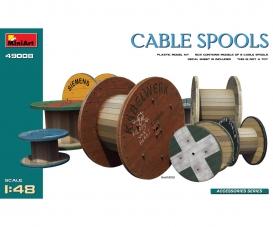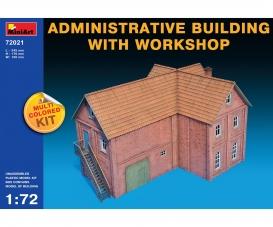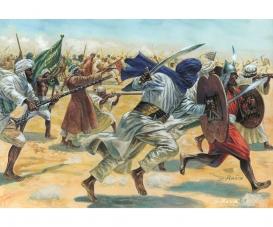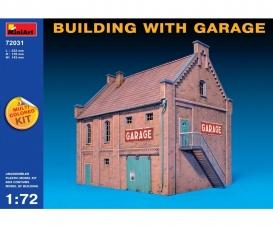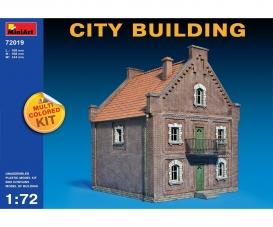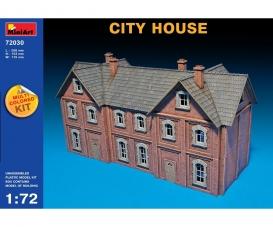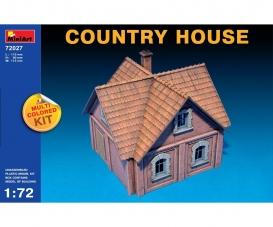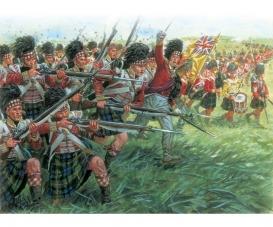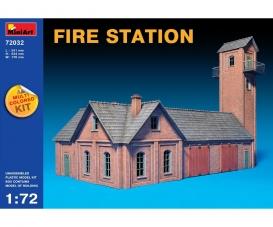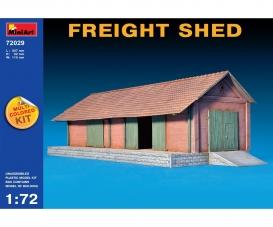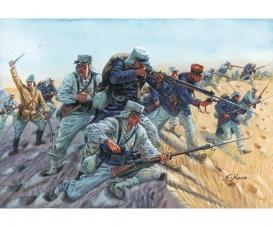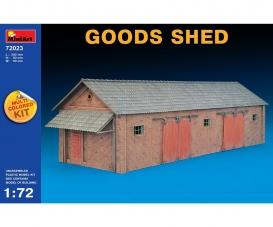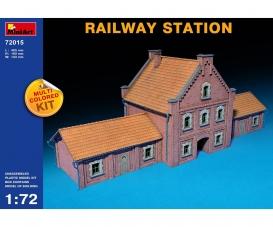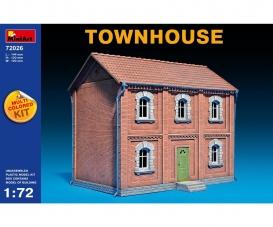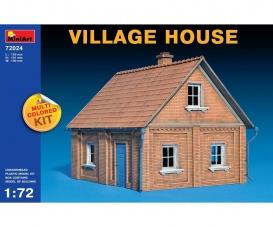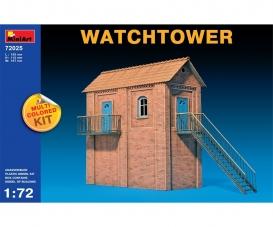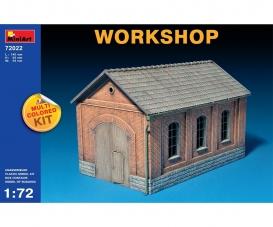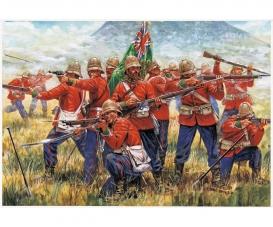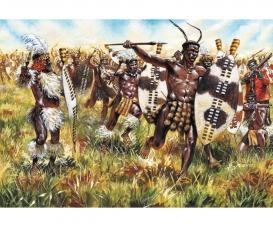Model figures
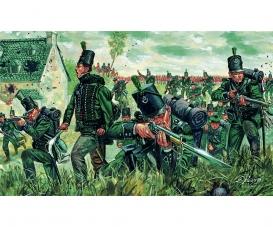
Model figures
1:72 95th Regiment "Green Jackets"
510106083available in stores
Article number: 510106083 Product: 1:72 95th Regiment "Green Jackets" The 95th regiment was a typical "rifle regiment" of light infantry. It was one of the first units to be equipped with the Baker rifles, remarkably more accurate than ordinary smooth bore muskets. Unlike the British line infantry who wore the traditional (and easily spotted) red coats, the regiment was equipped with dark green uniforms that can be considered an early form of "camo" uniform. They fought in loose order, like all light infantry units of the time. They took part in the campaign in the Peninsula and in the battle of Waterloo.
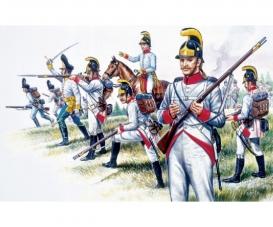
Model figures
1:72 Austrian Infantry Nap. Wars
510006005available in stores
Article number: 510006005 Product: 1/72 Napoleonic Wars: Austrian Infantry The Austrian infantry of the box is represented with the 1798 helmet characterized the light infantry Frei-Corps and Jagers battalions. Later on they have been adopted by most of Austrian riflemen battalions. In the box, the riflemen are flanked by the grenadiers with the distinctive bearskin caps. In July 1809 the Austrian troops, commanded directly by the Archduke Karl himself, were defeated by Napoleon during the Battle of Wagram. The figures may be used for the reproduction of the riflemen regiments or for Grenadiers Corps Reverse commanded by Liechtenstein.
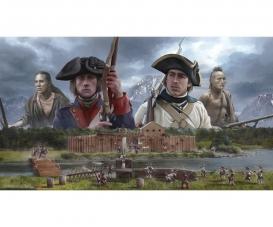
Model figures
1:72 Battle-Set Fren./Indian War 1754-63
510006180available in stores
Article number: 510006180 Product: 1:72 French and Indian War 1754-1763 The Seven Years' War took place between 1756 and 1763 and involved all the European Military powers of the time. It was considered, by many historians, as the first world war due to the fact that it spanned several Continents, affecting the Colonies owned by European States. In detail the French and Indian War comprised the North America theater where the Royal French troops, flanked by various indigenous forces allied with them, fought against the British Army and the Thirteen British American Colonies troops. Both armies moved quickly in order to capture and destroy enemy forts and settlements located along the frontiers. The war was very tough due to the severe operational environment and due to the ferocity of the fighting. The war was ended with the signing of the Treaty of Paris, on February 1763, where Britain gained the control of the French Colonies in North America. Detailed Plastic Kit of model French and Indian War 1754-1763 - The Last Outpost in scale 1:72
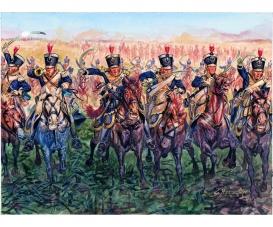
Model figures
1:72 Fig.-Set Light Cavalry Napol. Wars
510006094available in stores
14 FIGURES WITH HORSES INCLUDED Light Dragoons and Hussars regiments , including a few units of the "King’s German Legion", part of the third brigade serving under major general Sir W.Dornberg , in June 1815 took part in the famous battle of Waterloo where Napoleon met his definitive defeat. Armed with sabers and Paget model carbines, or with the more common Baker cavalry rifle, they are here represented wearing their typical shako introduced in 1812.
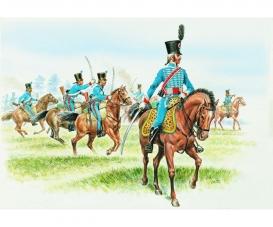
Model figures
1:72 French Hussars 1° REGIMENT HUSSARS
510006008available in stores
Article number: 510006008 Product: 1/72 French Hussars 1° REGIMENT HUSSARS The word "hussar" identifies the light horsemen and comes from the Hungarian "huszar". The most famous hussar units were the French regiments of the Napoleonic era. They were employed for scouting and communication purposes, and to screen the movement of the Emperor's corps, like during the advance that allowed the French to flank the Austrian general Mack at Ulm in 1805. The soldiers in this kit wear the uniform of the 1st Hussars employed at Jena in 1806, and they are characterized by the ornate Hungarian style uniform, sabretache, sabre and carbine. Contents 17 horsemen.
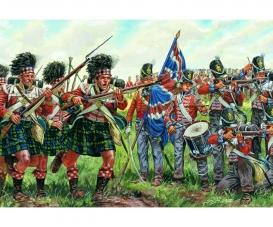
Model figures
1:72 Napol.Wars - British+Scots Infantry
510006058available in stores
Article number: 510006058 Product: 1/72 Napol.Wars - British+Scots Infantry The term "Redcoat" is used to call English soldiers. It comes from the color of the uniform used by most regiments. The redcoats are here with a Scottish regiment wearing their typical kilt, issued since 1739. The most famous Scottish regiment is the 42nd Royal Highlander "Black Watch", with their blue, green and black tartan. They took part in the Peninsular Campaign in 1812 and in the battles of Quatre Bras and Waterloo in 1815. Contents 48 figures.
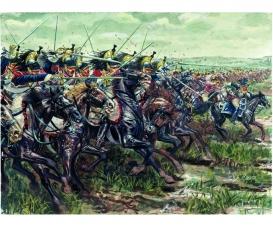
Model figures
1:72 Napoleon.Wars - French Cuirassieurs
510006084available in stores
Article number: 510006084 Product: 1:72 Napoleon. Kriege - Franz.Kürassiere Cuirassiers were the backbone of heavy cavalry in the Grande Armée. They are famous for the many cavalry charges on all the battlefields of the Napoleonic era. Characterized by their shiny breastplates, by the "Minerva" style helmet and by the heavy straight sabres, they were often led, like in the battles of Austerlitz (1805), Heilsberg (1807) , Wagram (1809), and Borodino (1812), by Murat, Napoleon's most skilled cavalry commander.
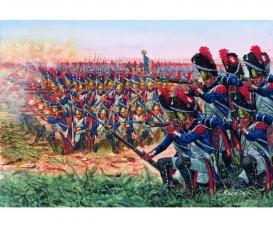
Model figures
1:72 Napoleonic Wars - French Grenadiers
510006072available in stores
Article number: 510006072 Product: 1:72 Napoleonic Wars - French Grenadiers The 1er Regiment de Grenadiers-à-Pied de la Garde Imperiale was the backbone of Napoleon's "Old Guard". A soldier could be admitted only after 10 years of service and irreproachable conduct. The Old Guard was usually employed as reserve, taking action only in decisive or difficult moments. The "grognards" or "grumblers", as Napoleon nicknamed them, represented the most accomplished regiment in the armée until Waterloo. Content 50 figures.
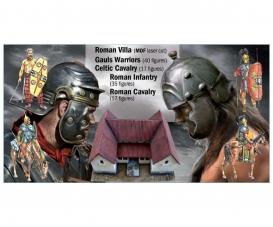
Model figures
1:72 PAX Romana Battle Set
510006115available in stores
Art.Nr.: 510006115 Product: 1:72 PAX Romana Battle Set THE BOX CONTAINS: Roman Villa - MDF laser cut with etched details, Roman Infantry (36 figures), Roman Cavalry (16 figures), Celtic Warriors (42 figures), Celtic Cavalry (15 figures). During the first Century B.C. a long period of internal civil wars declared the end of the Roman Republic and it laid the foundation for the birth of the Roman Empire. During the first Century exceptional political and military leaders, as Julius Caesar, wrote impressive historical pages thanks to military campaigns that expand the Roman border towards more and more distant frontiers. The most famous campaign, well described directly by Julius Cesar in his "De Bello Gallico", was conducted against the Gauls led by Vercingetorix and ended with the Roman victory at Alesia in 52 BC. The effectiveness and organization of the roman legions triumphed over the courage of the Celtic warriors. The military campaigns had gradually expanded the Roman borders until arriving in Britain and on the "Limes" of the Rhine river. However the Romans brought in the conquered lands, a political, legislative and cultural model completely new and innovative who contributed, for several years, to achieve a stable and definitely evolved social system. Detailed Plastic Kit of model PAX Romana Battle Set in scale 1:72














